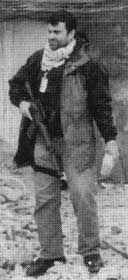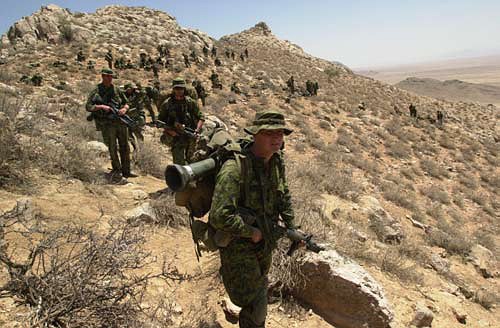
This is the fourth article of a series on Enhanced Interrogation Techniques. Part III can be read here.
In complete contrast to Jose Rodriguez, whose position was described in the previous article, former FBI Special Agent Ali Soufan has emerged as an outspoken critic of Enhanced Interrogation Techniques. Born in Lebanon, Soufan was one of the FBI’s first agents of Arab heritage and one of the Bureau’s few fluent Arab speakers before the September 11 Attacks. Soufan had a long history focusing on counterterrorism. He initially worked in the FBI’s New York City office in the unit led by Special Agent John P. O’Neil, one of the FBI’s leading experts on counter-terrorism. In 2000, he was made the FBI’s lead investigator on the USS Cole bombing in Yemen.

After the September 11 Attacks, Soufan became one of the FBI’s main interrogators of al-Qaeda operatives. Soufan’s interrogation philosophy was outlined in his 2011 book, The Black Banners: The Inside Story of 9/11 and the War Against al-Qaeda. Using his language skills and knowledge of Arab culture and Islam, Soufan attempted to dialogue with the suspected operatives. Instead of using fear to obtain information, Soufan attempted to win the respect of the men he interrogated. In particular, Soufain obtained confessions from Salim Hamdan (who was alleged to be Osama Bin Laden’s driver) and al-Qaeda spokesman Ali al-Bahlul. Soufan visited the Guantanamo Bay detention camp and later spoke publically about what he observed. Soufan retired from the FBI in 2005 and moved to the private sector. In 2005, he testified before the Senate Judiciary Committee as an expert witness.
In two interviews with The New Yorker and Harper’s Magazine, Soufan rebutted many of the comments made by the advocates of Enhanced Interrogation Techniques. In Soufan’s view, EITs were tremendously dangerous and grievously hurt the United States counter-terrorism efforts. His book argued that EITs not only produced inaccurate intelligence, but also made information inadmissible in court, assisted al-Qaeda recruiting efforts and alienated many of America’s closest allies. In the interview with Harper’s Magazine, Soufan noted that EITs were originally created by psychologists with little practical knowledge of counter-terrorism interrogations. The techniques they created were ultimately meant to ensure compliance by the detainees through a long, gradual process of instilling unrelenting despair. As a result, they would have been of little use in a legitimate ticking bomb scenario that required quick results.
Ali Soufan was quick to argue that the debate over EITs was more than the CIA versus the FBI. In his 2011 memoir, he noted that many experienced CIA counterterrorism officers opposed the use of EITs. Furthermore, much of the CIA’s Detention and Interrogation Program was run by contractors and CIA officers will little actual experience fighting al-Qaeda. The mass exodus of experienced former field operatives in the mid-2000s indicates that there was a internal debate within the CIA itself. High-ranking officials were under immense pressure from the White House to deliver tangible results.
For all its successes or failures, the Detention and Interrogation Program was a bold move. It gave the perception that the CIA was taking aggressive steps to combat potential terrorist threats in the Middle East and elsewhere. Unfortunately, traditional interrogation techniques often take time. They usually focus on building up relationships between interrogators and suspects. Over the long-term, that is arguably the best approach for sustainably collecting accurate intelligence. Though the actual results of the Guantanamo Bay detention camp may have been limited (and hotly contested), senior Bush administration officials publically stated their belief that the program was vital to national security.
The New Yorker and CBS journalists interviewing Jose Rodriguez noted a number of problems with his arguments. The narrative put forth in his memoir often seemed at odds with the observations by other experienced counter-terrorism experts, including Ali Soufan. In a statement on the floor of the United States Senate in December 2014, Senator John McCain had a powerful case for why Enhanced Interrogation Techniques ultimately failed. As a prisoner of war during the Vietnam War, McCain brought a perspective that complements the conflicting narratives presented by Jose Rodriguez and Ali Soufan. McCain noted that “the use of torture compromises that which most distinguishes us from our enemies, our belief that all people, even captured enemies, possess basic human rights.” In addition, McCain was clear that Enhanced Interrogation Techniques were “neither in the best interests of justice nor our security nor the ideals we have sacrificed so much blood and treasure to defend.”




